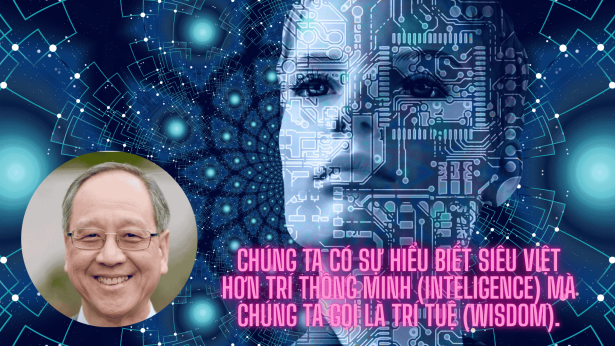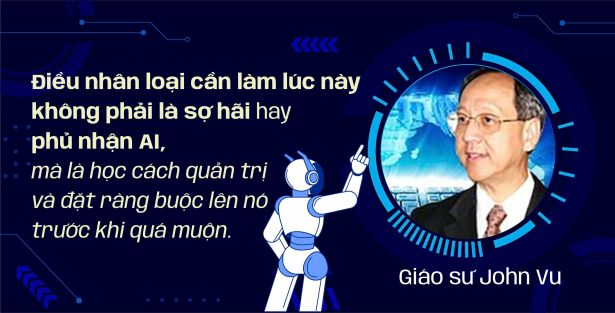 13 Jan, 2021
13 Jan, 2021
Sự kiện thú vị về công nghệ phần mềm
Điều thú vị nhất về công nghiệp phần mềm là nhiều công ti hàng đầu đã do các sinh viên đại học sáng lập ra.
Steve Jobs là sinh viên năm thứ nhất tại đại học Reed khi ông ấy bắt đầu Apple Computer. Bill Gates bắt đầu Microsoft khi ông ấy là sinh viên năm thứ ba tại HarvardUniversity. Jerry Yang và David Filo đã thành lập Yahoo! khi họ là sinh viên tại Stanford, và Larry Page và Sergey Brin đã thành lập Google khi họ cũng là sinh viên tại Stanford.
Khảo cứu về các triệu phú dưới 30 tuổi, cho thấy rằng 78% số họ là sinh viên đại học, nhiều người học về Khoa học máy tính hay Kĩ nghệ phần mềm và họ tất cả đều có chung một tính cách: Tất cả họ đều có đam mê về điều họ làm và họ là những người bạo dạn. Khảo cứu này kết luận: “Có lẽ bởi vì tuổi trẻ, họ không sợ thất bại, và họ giữ thúc đẩy cho tới khi họ thành công. Nhiều người đã bắt đầu công ti riêng của họ sau khi phát minh ra cái gì đó mới và tất cả họ đều muốn thấy liệu họ có thể làm cho nó thành của riêng họ được không.” Tinh thần độc lập này là hoàn toàn duy nhất ở Mĩ bởi vì có rất ít “doanh nhân” như họ ở bất kì đâu khác. Châu Âu với văn hoá tương tự và giáo dục tốt không có ai như Bill Gates hay Steve Jobs.
Một khảo cứu khác về các quan chức điều hành hàng đầu của các công ti công nghệ do tạp chí Wall Street Journal tiến hành cũng thấy rằng trên 80% số họ có bằng đại học. Quãng 15% có bằng thạc sĩ và vài người có bằng tiến sĩ. Hơn hai phần ba có bằng về khoa học, công nghệ và kĩ nghệ chỉ vài người có bằng trong kinh doanh và tài chính. Sự kiện thú vị khác là đa số họ có được bằng cấp ở trường tư. Các trường có các triệu phú được nhận bằng cấp là 1) Massachusetts Institute of Technology; 2) Stanford University; 3) Carnegie Mellon University; 4) California Institute of Technology; 5) Harvard University; 6) University of California, Berkeley; 7) University of Southern California; 8) University of Pennsylvania, 9) Georgia Institute of Technology và 10) University of Texas, Austin.
Sự kiện thú vị khác về triệu phú phần mềm là họ không giống như các triệu phú khác, họ không mặc như các triệu phú khác, họ không ăn như các triệu phúc khác, họ không hành động như các triệu phú khác. Phần lớn trong họ không có quần áo đắt tiền, đồng hồ đắt tiền, xe hơi đắt tiền, nhà đắt tiền và các vật phẩm chứng tỏ địa vị khác. Thực tế, họ trông như bất kì người phát triển phần mềm điển hình nào mà mọi người thấy, làm việc bận rộn trên máy tính của mình. Người giầu nhất, Bill Gates lái chiếc xe Lexus 1999 và thường ăn tại Mc Donald. Steve Jobs nổi tiếng với quần gin xanh nhạt và áo nịt đen. Trước khi ông ta xuất hiện trên báo chí, người sáng lập ra Google, Sergey Brin hay kể lại câu chuyện: “Văn phòng của tôi trông không xinh xắn, quần áo của tôi không đẹp và khi quan chức điều hành Nhật Bản lần đầu tiên gặp tôi, ông ấy nghĩ tôi là quản gia. Ông ấy nhìn văn phòng của tôi, nhìn vào mọi người ở đó trừ tôi, cho tới khi ai đó giới thiệu tôi. Ông ấy ngạc nhiên thế và nói: “Ồ, tôi quên mất là tôi đang ở Mĩ.”
Khảo cứu này cũng thấy một sự kiện rất thú vị liên quan tới thuật ngữ “Wealthy-giàu có”. Từ điển Webster định nghĩa wealthy-giàu có là người có dư thừa tài sản vật chất nhưng phần lớn các triệu phú phần mềm định nghĩa giàu có theo cách khác. Trong cuộc phỏng vấn với tạp chí Wall Street Journal, Steve Jobs nói: “Chúng tôi KHÔNG định nghĩa giàu có dưới dạng tài sản vật chất. Chúng tôi KHÔNG lựa chọn phong cách sống tiêu thụ cao mà có ít hay không có đầu tư vào tài sản trí tuệ. Điều chúng tôi sở hữu là “sức mạnh trí não” và “đam mê bạo dạn” để làm bất kì cái gì chúng tôi chọn.”
Một sự kiện thú vị khác là phần lớn các triệu phú này đều là người giàu thế hệ thứ nhất. Làm sao những người từ bối cảnh giản dị nhất có thể trở thành triệu phú trong một thế hệ? Tại sao có chuyện nhiều người với các bối cảnh tương tự chưa bao giờ tích luỹ ngay cả khối lượng của cải khiêm tốn nhất? Khảo cứu này cho thấy rằng phần lớn những người trở thành triệu phú đều có niềm tin vào khả năng riêng của họ. Họ không quan tâm về liệu bố mẹ họ có giàu hay không. Họ không tin rằng người ta phải được sinh ra trong giàu sang. Một tờ báo Pháp đã viết về họ là “Những “Nouveau riche” đã đạt tới đỉnh mà không dùng tới của cải kế thừa và chúng tôi không biết tại sao.”
Câu trả lời có thể bởi vì phần mềm vẫn là khu vực mới và vẫn đang thay đổi, nó tạo ra nhiều cơ hội hơn cho những người có kĩ năng và đam mê tạo ra khác biệt. Chẳng hạn, iPhone mới mở ra nhiều cơ hội hơn và giúp tạo ra nhiều triệu phú ở Mĩ trong năm qua. Apple động viên mọi người tạo ra ứng dụng cho iPhone rồi họ bán trong cửa hiệu Apple. Nhiều ứng dụng bán với giá dưới $1 nhưng với vài triệu người dùng, không khó kiếm được triệu đô la. Ngày nay Apple có hơn 200,000 ứng dụng và danh sách này tiếp tục phát triển mọi ngày. Với iPad mới, danh sách này có lẽ sẽ phát triển lớn hơn và có lẽ tạo ra nhiều cơ hội hơn trước đây. Các ứng dụng di động là khu vực rất nóng cho thanh niên về cả tạo ra những thứ mới với những cơ hội mới.
Với toàn cầu hoá, và khi công nghệ thông tin tiếp tục tiến bộ, tôi tin rằng nhiều cơ hội hơn sẽ trở thành sẵn có cho mọi người trên khắp thế giới, đặc biệt cho những người sở hữu “Năng lực trí não và đam mê bạo dạn để làm bất kì điều gì họ muốn.”

—-English version—-
Interesting facts about software industry
The most interesting thing about software industry is many top companies were founded by college students. Steve Jobs was a first year student at Reed college when he started Apple Computer. Bill Gates started Microsoft when he was a third year student at HarvardUniversity. Jerry Yang and David Filo formed Yahoo! when they were students at Stanford, and Larry Page and Sergey Brin formed Google when they also were students at Stanford .
A study of millionaires under the age of 30, found that 78% of them were college students, many studied Computer Science or Software Engineering and they all shared a common character: They all have passion on what they do and they are fearless. The study concluded: “Probably because of their youth, they are not afraid of failure, and they keep on pushing until they succeed. Many started their own companies after invented something new and they all wanted to see if they can make it on their own”. This independent spirit is quite unique in America because there are very few “Entrepreneurs” like them anywhere else. Europe with a similar culture and good education does not have someone like Bill Gates or Steve Jobs.
Another study of top executives of technology companies by the Wall Street Journal also found that over 80% of them had bachelor’s degrees. About 15% had master’s degrees and few had doctorates degrees. More than two third of the degrees were in science, technology, and engineering with only few were in business and finance. Another interesting fact was a majority of them earned their degrees in private schools. The schools where these millionaires earned degrees were 1) Massachusetts Institute of Technology; 2) Stanford University; 3) Carnegie Mellon University; 4) California Institute of Technology; 5) Harvard University; 6) University of California, Berkeley; 7) University of Southern California; 8) University of Pennsylvania, 9) Georgia Institute of Technology and 10) University of Texas, Austin.
Another interesting fact about these software millionaires is they don’t look like other millionaires, they don’t dress like other millionaires, they don’t eat like other millionaires, they don’t act like other millionaires. Most of them do not own expensive clothes, expensive watches, expensive cars, expensive houses and other status artifacts. In fact, they look like any typical software developers that people saw, busy working on their computers. The richest, Bill Gates drives a 1999 Lexus and frequently eat at Mc Donald. Steve Jobs is well known for his fade blue jeans and black sweater. Before his face was on newspapers, the founder of Google, Sergey Brin used to tell a story: “My office does not look pretty, my clothes is not nice and when a Japanese executive first met me, he thought I was a janitor. He looked in my office, looked at everyone there but me, until someone introduce me. He was so surprised and said: “Oh, I forgot I was in the U.S”.
The study also found a very interesting fact regarding the term “Wealthy”. The Webster’s dictionary define wealthy as people who have an abundance of material possessions but most software millionaires define wealthy differently. In an interview with the Wall Street Journal, Steve Jobs said: “We do NOT define wealthy in terms of material possessions. We do NOT select a high-consumption lifestyle that have little or no investments in intellectual assets. What we possess is “Brain power” and a “fearless passion” to do whatever we chose”.
Another interesting fact is most of these millionaires are first-generation rich. How is it possible for people from modest backgrounds to become millionaires in one generation? Why is it that so many people with similar backgrounds never accumulate even modest amounts of wealth? The study found that most people who become millionaires have confidence in their own abilities. They do not care about whether or not their parents were wealthy. They do not believe that one must be born wealthy. A French newspaper wrote about them as “These “Nouveau riche” having reached the top without the benefit of inherited wealth and we do not know why.”
The answer could be because software is still a new area and is still changing, it creates more opportunities for people who has skills and a passion to make a difference. For example, the new iPhone opens more opportunities and helps create more millionaires in the U.S just in the past year. Apple encourages people to create applications for the iPhone then they sell them in the Apple stores. Many applications sell for less than $1 but with several million users, it is not too difficult to make a million dollar. Today Apple has more than 200,000 applications and the list continues to grow everyday. With the new iPad, the list probably will grow bigger and probably create more opportunities than before. Mobile applications is a very hot area for young people today for both creating new things with new opportunities.
With globalization, and as information technology continues to progress, I believe that more opportunities will become available for people around the world, especially to people who possess “Brain power and a fearless passion to do whatever they want”.




 Thông báo
Thông báo














 Quay lại đăng nhập
Quay lại đăng nhập
